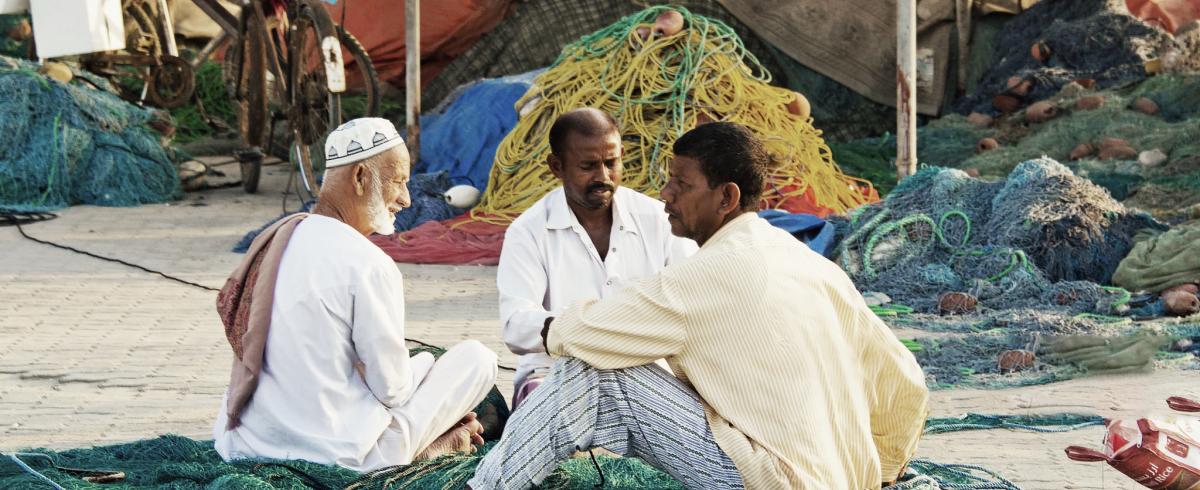
Categories to Explore
Welcome to the Resource Library. Here you will find a range of resources that you can use to support your small-scale fishery and community. Use the buttons above to browse resources by category or use the filters on the right to sort resources.
SWIOTUNA Success Stories Booklet
This booklet presents key highlights on the issues, interventions and achievements of SWIOTUNA and other relevant CSO and NSA in the management of marine fisheries resources in their respective countries and regions in the SWIO.
Catalyst Fund AAA Framework
The Catalyst Fund AAA Framework evaluates three core characteristics that indicate whether tech products are truly inclusive for low-income end customers: affordability, accessibility and appropriateness
The Climate and Ocean Risk Vulnerability Index (CORVI)
The Climate and Ocean Risk Vulnerability Index (CORVI) is a decision support tool for leaders who need to make smart climate investments to improve the safety and security of coastal cities.
Impact of Ocean Risks on SIDS and LDCs
Coastal communities in SIDS and LDCs have high levels of exposure and sensitivity to ocean risks, in part owing to the heavy dependency on the sea for fisheries and tourism. This report outlines the impacts of prominent biophysical and anthropogenic stressors on SIDS and LDCs, highlights the key social-ecological features that shape their vulnerabilities to these stressors, and suggests potential ways to mitigate ocean risks and build resilience.
Coral Reef Monitoring in Eastern Africa - A Guide for Communities
This guide fills a critical gap by providing a carefully thought through and practical approach for community-led coral reef and fisheries monitoring. It provides guidance on how local communities, with minimal support, can independently undertake simple coral reef habitat and fisheries monitoring, data collection, analysis and interpretation of their data to improve understanding of the status of their resource and be able to devise appropriate management actions.
East and Southern Africa / Western Indian Ocean Futures
The challenge for Western Indian Ocean countries is “how to achieve successful economic growth, build social welfare and equity AND maintain the health of ocean ecosystems”
East and Southern Africa (ESA) comprises ten coastal countries bordering the Western Indian Ocean (WIO) – Comoros, France, Kenya, Madagascar, Mauritius, Mozambique, Seychelles, Somalia, South Africa and Tanzania.
Marine Spatial Atlas for the Western Indian Ocean (MASPAWIO)
An open access geospatial data repository for the Western Indian Ocean
MASPAWIO provides access to marine spatial datasets, providing layers useful for marine spatial planning, management and research, from multiple primary and secondary sources, and contributing compiled information into other regional and global repositories
Community homestay enterprises Toolkit
This homestay toolkit sets out a number of key strategic considerations that local communities, and their partners in government and civil society, might wish to take into account when deciding whether and how to develop a community based tourism venture.
Direct-to-Consumer Strategies for Seafood: The Landscape, Challenges, and Opportunities since COVID-19
This report categorizes the different types of direct-to-consumer [D2C] models that currently exist within the seafood sector, and evaluates their respective strengths and weaknesses, the enabling conditions important for certain models to thrive, as well as barriers to scale and growth. The goal is to provide insight into how these models may affect the way wild capture seafood is bought and sold around the world, and in particular, the impact this may have on social and environmentally responsible seafood initiatives.
Global Impacts of the COVID-19 pandemic on the Seafood Industry
For nearly two years, local, regional, and global fisheries and seafood supply chains have been forced to adjust and adapt to the unprecedented conditions brought on by the COVID-19 global pandemic.
This study seeks to synthesize the complex conditions and outcomes to date, and provide an overview of the current landscape of change. Within that landscape we explore which trends or pa terns emerged simply as stop gaps in a moment of crisis, and which shifts are likely to last in the long-term.
